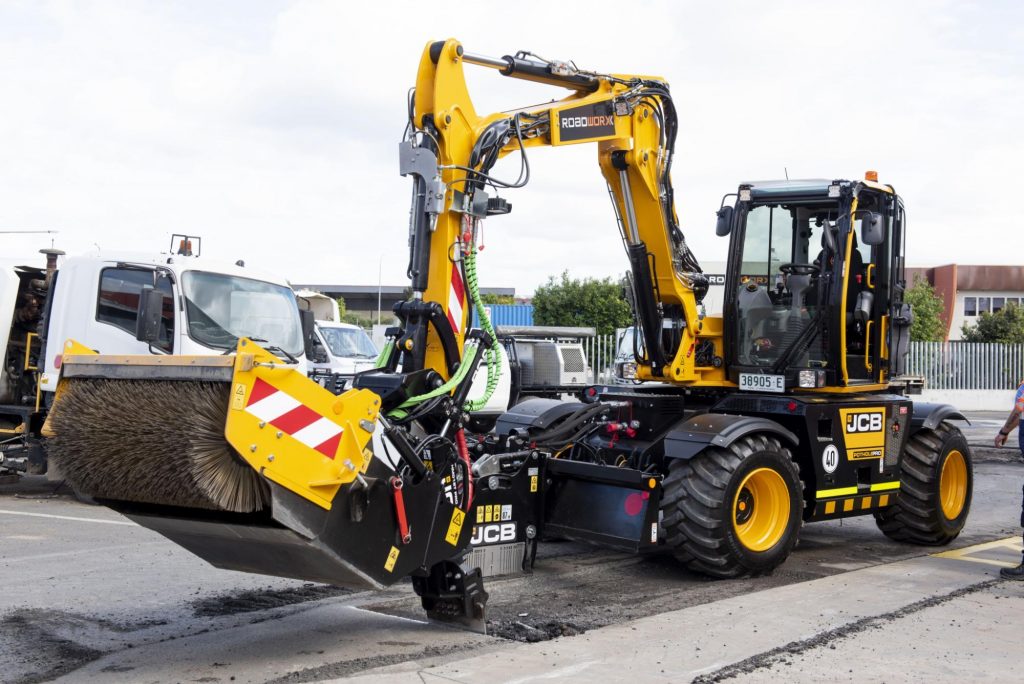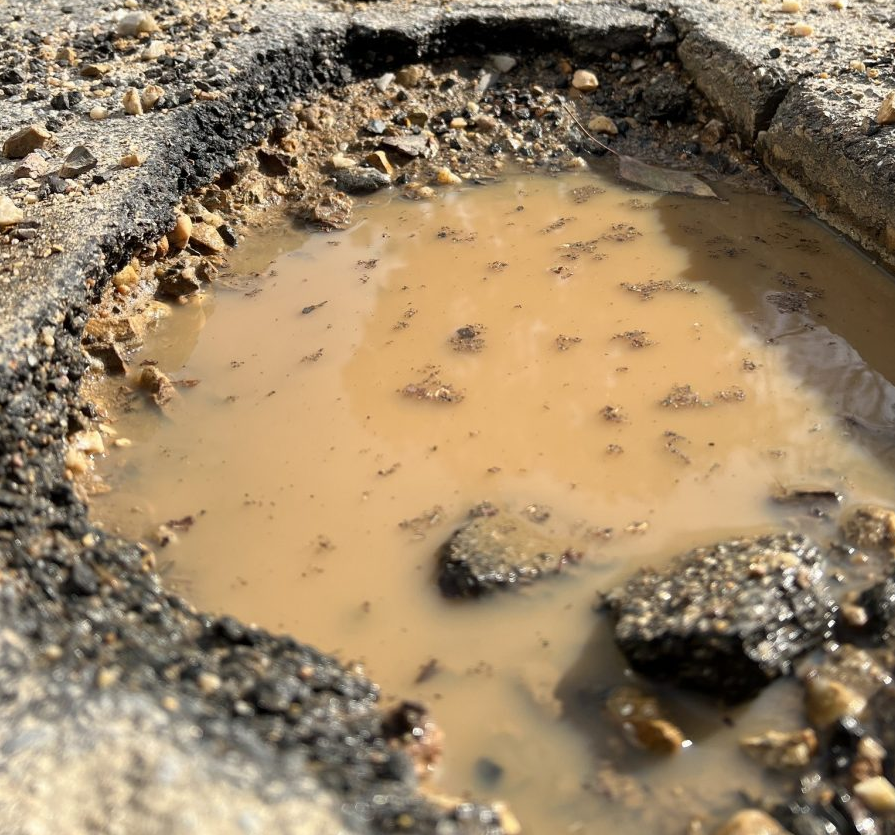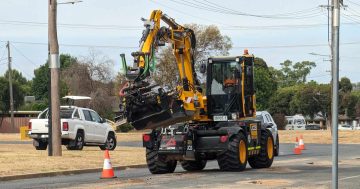
Will the JCB Pothole Pro be the answer to Wagga’s pothole woes? Photo: JCB CEA.
Wagga Wagga City Council has agreed to engage in a trial of a state-of-the-art pothole-filling machine that looks to improve the quality of roads and reduce their repair time.
The new machine will arrive in Wagga for a minimum of one week following a report conducted by the council in September assuring the machine was suitable for local roads.
Following the trial, the council will receive a further report evaluating the machine against the administration’s current pothole-filling and repair practices.
Council director of infrastructure services Warren Faulkner said the machine, which would be on wet hire from Roadworx Industries, was one of only two machines of its kind in Australia.
“The new machine has a profiling attachment and a sweeper green bracket on a one-wheel excavator,” Mr Faulkner said.
“We’ve been looking into this since November last year. We said we would look at new technology to try and improve the pothole situation in the city and this is a big step in responding to that.”
Mr Faulkner said the council had contacted Roadworx Industries and expected the machine to arrive in mid-January.
“They (Roadworx Industries) will allow us to wet-hire the machine for at least a week, which will cost about $13,000. There is an option to extend the trial period to two weeks for around $20,000,” he said.
“We’ve asked surrounding councils like Cootamundra and Junee if they would be interested in sharing the costs for the machine.”
Currently, the outright cost of the machine is more than $400,000.
“As there are only two machines in the country right now, it isn’t cheap,” Mr Faulkner said.
“As more come to Australia from the UK, we do expect that price to drop.”

Wagga Wagga Council will trial a new pothole-filling machine in an attempt to improve the quality of the city’s worst-affected roads. Photo: Chris Roe.
Mr Faulkner said he was pleased with the rapid response and availability of the machine on short notice given its demand.
“It is currently in Wollongong and is getting a lot of attention,” he said.
“To be able to secure it for January is quite pleasing.”
The council currently has two machines, smaller than the JCB Pothole Pro, which require separate profiler attachments. The new machine, which includes the attachments, is expected to complete work up to three times faster than the current skid steer loaders in operation.









